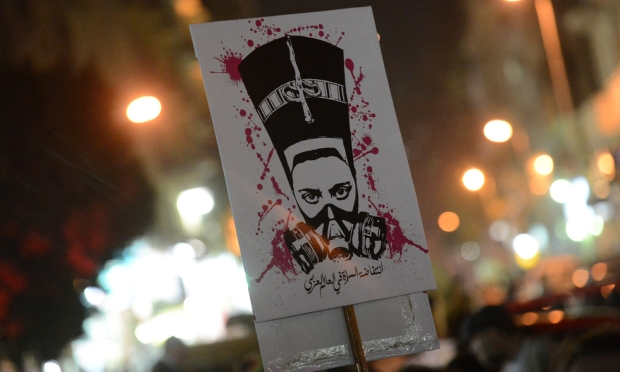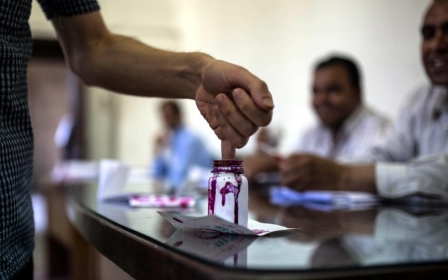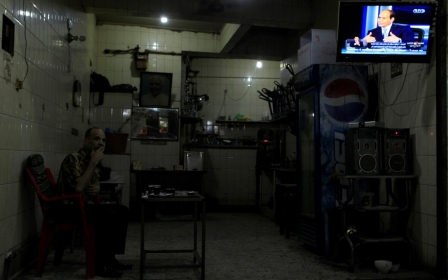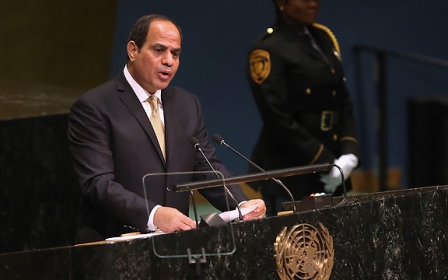Why we should speak up for Egypt
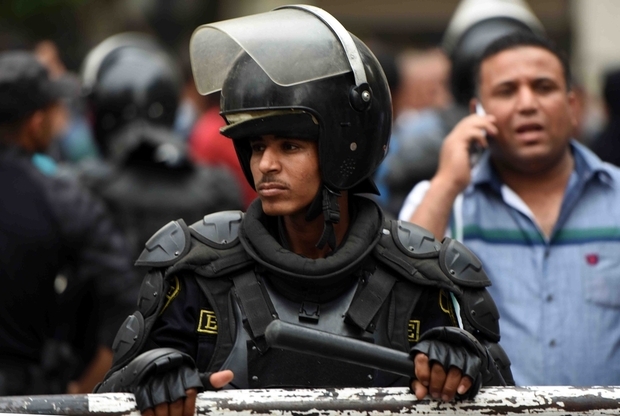
On 24 November 2017, more than 300 worshipers gathered in Al Rawdah Mosque in Sinai were brutally killed in one of the deadliest terrorist attacks Egyptians have suffered in their receent history.
Families of the many victims of this gruesome attack deserve justice. Unfortunately, President Abdel Fattah el Sisi's all too familiar vow of retribution with "all brute force" is not only ineffective but also counterproductive and unjust.
Human rights lawyers and activists know what President Sisi's statement entails for the everyday lives of Egyptians in Sinai and in the rest of the country: this tragedy will be used to legitimise gross violations of their fundamental rights.
Appalling accounts
In a bid to consolidate the political order established after the military takeover of 2013, the Egyptian authorities have made use of an approach that Naomi Klein defines as the "shock doctrine", which uses the horror and fear caused by terrorism to further advance strategic and economic interests.
Under the pretext of maintaining stability and security and countering terrorism, President Sisi's government is carrying out severe abuses to consolidate its control over the population.
One can grasp the magnitude of the human rights crisis in the country by reading through the appalling accounts of victims of abductions, torture and arbitrary detention, as well as the testimonies of families whose loved ones were disappeared or summarily executed by security forces.
Violating fundamental rights – including the right to freedom of expression – while countering terrorism is in itself a breach of international law. However, Egypt's current government has gone further: It is using the pretext of counterterrorism to criminalise peaceful criticism and dissent.
The crackdown on freedom of expression carried out against Egyptian society has been enabled by restrictive laws, abuses committed by security forces in complete impunity, and the wide scale monitoring of media and communications.
A culture of fear
It started in 2013 with the Anti-Protest Law, which was one of the first pieces of legislation passed by the government following the military takeover. The law has led to the arrest and torture of thousands of peaceful demonstrators, students, and activists accused of "planning" or "inciting" to demonstrate.
This law is, however, just one part of a much larger legal apparatus set up to consolidate a political order that leaves no space for opposition by imposing a culture of fear within Egyptian society.
The Press and Media Law has severely restricted the work of journalists, leading to the arrests of many of them under charges such as "spreading false news" for covering human rights abuses or transmitting information on such abuses to foreign correspondents.
Egypt is the third worst incarcerator of journalists in the world, and it is ranked 161 out of 180 countries in terms of press freedom
The Anti-Terrorism Law of 2015 is one of the most repressive in the region, and has allowed for the arbitrary listing of journalists and human rights defenders as "terrorists," allowing the authorities to freeze their assets and impose travel bans.
The latest blow was the NGO Law of 2017, which imposed strict surveillance on the activities of associations to the extent that independent organisations are facing no other alternative than to shut down or relocate.
In practice, these laws are being used as tools for repression by unaccountable security forces and a judiciary subordinated to the executive. It is estimated that over the past four years more than 60,000 arrests have been carried out by the authorities, a majority for peaceful acts of free speech.
Egypt is the third-worst incarcerator of journalists in the world, and it is ranked 161 out of 180 countries in terms of press freedom. Since May 2017, more than 400 websites – including those of independent news outlets and human rights organisations – have been blocked.
Adding to the thousands of cases of torture and mistreatment, hundreds of people have died in custody since 2013 as a result of torture combined with appalling conditions of detention and the denial of medical care.
Unprecdented levels of torture
In August 2017, the United Nations Committee against Torture published a report following a four-year-long impartial and confidential inquiry on the practice of torture by Egyptian security forces.
The UN experts came to the "inescapable conclusion" that torture is a "systematic practice" which is "habitual, widespread and deliberate".
Figures show that since, the military takeover, the practice of torture has reached unprecedented levels in the country. Still, this UN inquiry and its alarming conclusions went largely unnoticed by the mainstream media and did not cause any major uproar among Egypt's democratic allies.
In fact, these practices have been carried out with the silence – if not the support – of liberal Western democracies, for which the political stability of the Egyptian government and economic interests take precedence over human rights concerns, even if civilians pay a heavy price.
A telling example is the statement of French President Emmanuel Macron during Sisi’s visit to Paris in October that he would not give "any lessons" to his counterpart, while NGOs were calling on him to address as a priority the human rights crisis in Egypt.
This willful disregard for human security in the name of state security and other strategic interests can, however, be challenged.
Beyond the human rights advocates' cosmopolitan argument calling for the universal respect of human rights as a value in itself, it also important to make the public – especially in democratic societies – aware that they can play a positive role in this international political dynamic.
Speak up for Egypt
The EU is both Egypt's largest import and export partner, receiving considerable amounts of aid from the European taxpayer. Egypt is also one of the biggest recipients of US financial aid, a large portion being military aid. In other words, EU and US taxpayer money is being used to reinforce state violence.
The dependency of such regimes on the support of Western governments should not be a reason to lament but rather an opportunity to seize and use our right to free expression to hold our respective governments accountable in their relations with their less accountable peers. Those who, at the end of day, pay for the financial and military support to these governments can play a role in this process.
Allowing political, financial, technological, and military support to be used to violate the most fundamental rights of Egyptian citizens is not only at odds with ideals of peace and democracy but also counterproductive to the stability and security of us all.
Stability cannot be achieved through brute force, but instead by ensuring the respect of the rule of law in its fundamental sense. The more peaceful, legal and political ways to engage in criticism and opposition are available and effective, the less arguments put forward by extremists – that only violence can bring about change – will be audible.
Stability cannot be achieved through brute force, but instead by ensuring the respect of the rule of law in its fundamental sense
It is imperative that the international solidarity that already exists in the fight against poverty and disease be extended to civil and political rights in order to fight for the complete universality of human rights.
One of the first steps in initiating such a movement is ensuring that taxpayers are aware of the human rights crises that their respective governments are reinforcing with blind foreign aid.
This is what the campaign #SpeakUp4Egypt tries to contribute to by raising awareness among western audiences of the crackdown on rights and freedoms ongoing in the country under the name of maintaining stability, and supported by their financial aid.
As today marks the beginning of a year-long campaign leading up to the 70th anniversary of the Universal Declaration of Human Rights, it is more important than ever to involve the global community in ensuring a just and sustainable peace and stability.
The objective to ensure freedom from fear and want of all people – an objective declared in the human rights declaration in 1948 as a result of painful historical lessons – can be upheld, but not without the involvement of people themselves.
-Khadidja Nemar is a French born Algerian human rights lawyer, and the Alkarama Foundation’s Regional Legal Officer for the Maghreb and Nile regions. Follow her on Twitter: @RadidjaN.
The views expressed in this article belong to the author and do not necessarily reflect the editorial policy of Middle East Eye.
Photo: An Egyptian policeman stands guard during a protest of journalists on 4 May (AFP)
Middle East Eye propose une couverture et une analyse indépendantes et incomparables du Moyen-Orient, de l’Afrique du Nord et d’autres régions du monde. Pour en savoir plus sur la reprise de ce contenu et les frais qui s’appliquent, veuillez remplir ce formulaire [en anglais]. Pour en savoir plus sur MEE, cliquez ici [en anglais].



